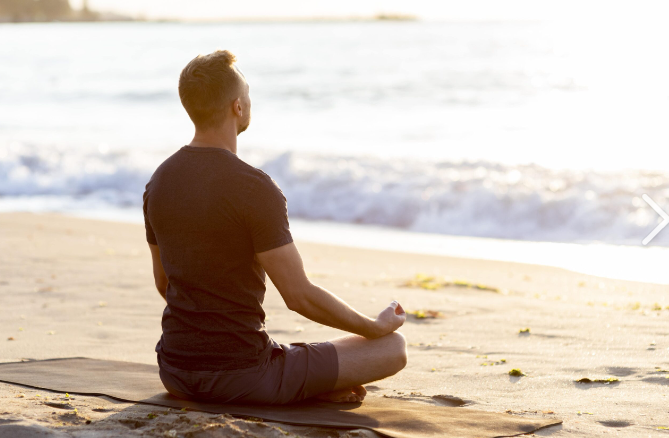In today’s fast-paced world, it’s easy to get caught up in the hustle and bustle of daily life. We often find ourselves overwhelmed with work, family, and social obligations, leaving little time for self-care and reflection. However, by incorporating mindfulness into our daily routine, we can simplify our lives and find inner peace. Mindfulness is the practice of being present in the moment, without judgment or distraction. It involves paying attention to our thoughts, feelings, and physical sensations, and accepting them without trying to change or control them. By doing so, we can reduce stress, improve our mental health, and enhance our overall well-being. Here are some tips for incorporating mindfulness into your daily life:
1.Start with simple meditation:
A quick and easy meditation is an excellent place to begin practising mindfulness. Sit on a straight-backed chair or cross-legged on the floor. Focus on an aspect of your breathing, such as the sensations of air flowing into your nostrils and out of your mouth, or your belly rising and falling as you inhale and exhale.
2. Find a community:
Developing a sustainable meditation practice is hard. So hard, that when many people start working with executives, most tell them that they’ve tried meditating, but only a very few report having regular practice. This isn’t because they don’t see benefits. Many say things like, “I noticed a clear … A lot has been said about the importance of mindfulness and how to practice it in the workplace, but the advice doesn’t always address how to develop a sustainable practice over time. Finding a community of like-minded individuals can help you stay motivated and committed to your practice.
3. Practice open awareness:
There is more than one way to practice mindfulness. Still, any mindfulness technique aims to achieve a state of alert, focused, relaxed consciousness by deliberately paying attention to thoughts and sensations without passing judgment on them. This allows the mind to focus on the present moment with open awareness.
4. Incorporate mindfulness into your daily routine:
Practising everyday mindfulness can also improve your memory and concentration skills and help you feel less distracted and better able to manage crises like dealing with the pandemic. Take a few minutes each day to reflect on your thoughts and feelings. The point of these brief, daily reflections is to help you tap into calmness whenever life gets too hairy.
5.Be patient with yourself:
Progress may not always feel linear, or even how we expect progress to feel. Sometimes our minds have a hard time quieting down. Sometimes giving them the space to roam freely only dials up the volume on irritating memories or thoughts. The key is to understand that progress may not always feel linear, and that’s okay. Be patient with yourself and trust the process.
6.Practice mindfulness in small doses throughout the day:
Incorporating mindfulness into your everyday life doesn’t need to be difficult. It can be as simple as daily mindful breathing exercises. The American Psychological Association defines mindfulness as a sense of awareness of one’s surroundings, as well as one’s internal state of being. Mindfulness practice can help people acknowledge their thoughts and feelings healthily and enable them to avoid habits or behaviours that might be destructive or unhelpful.
In conclusion, mindfulness is a powerful tool that can help us simplify our lives and find inner peace. By incorporating mindfulness into our daily routine, we can reduce stress, improve our mental health, and enhance our overall well-being. So take a few minutes each day to reflect on your thoughts and feelings, and be patient with yourself as you embark on this journey of self-discovery and mindfulness.




















